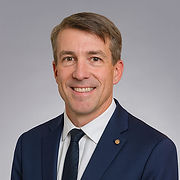Insights Brought to You by:
Host:
Want Deeper Market Intelligence?
Wood Mackenzie’s presentation, featuring the full list of APAC cross-border CCS MoUs, is available as a separate resource:
Download Wood Mackenzie's Complimentary Slides' here
[IMPACT Webinar] Enabling Japan’s Cross-Border CCS Partnerships – From National Strategy to Global Synergies
Date & Time: 15:00-17:00 JST, Aug 20
Format: Online webinar powered by Zoom
Abstract:
Japan’s decarbonization journey has entered a pivotal stage—built on a structured CCUS roadmap, yet increasingly dependent on cross-border collaboration to meet net-zero goals. With hard-to-abate sectors like steel, cement, and power generation requiring robust carbon management solutions, Japan is now turning outward to co-develop a trusted, investable regional CCS ecosystem.
This high-level webinar convened voices from across Asia-Pacific and North America to examine the evolving landscape of bilateral CO₂ storage partnerships. From Australia’s geological advantage and Indonesia’s regulatory leap, to emerging hubs like Timor-Leste and market-ready partners like Alberta, the session explored how cross-border initiatives can mature into bankable, interoperable, and resilient carbon management frameworks.
Recording Timestamp
03:01–25:34 | [Keynote] Cross-border carbon transport: Action emerges from beyond the drawing board?
Ms. Hetal Gandhi, Lead - CCUS, APAC, Wood Mackenzie
26:18–43:40 | [Keynote] Inside Japan–Australia Cross-Border CCS: Progress, Barriers, and Next Steps
Ms. Celeste Koravos, CEO, Australia Japan Business Council of Victoria (AJBCV)
44:51–1:01:24 | [Keynote] Positioning Indonesia for Regional CCS Leadership: Building the Foundation for Collaborative CO₂ Storage Solutions
Ms. Diofanny S Putri, Director of Indonesia & Regional CCS Strategic Initiative, Indonesia CCS Center
1:01:28–1:22:47 | [Keynote] New Frontiers: Unlocking the Possibility of Japan–Timor Leste CCUS Partnerships
Mr. Luzerio Teme, CCS Coordinator, Ministry of Petroleum and Mineral Resources of Timor-Leste
1:22:50–1:41:41 | [Keynote] Unleashing Investment in Japan-Alberta CCUS Partnerships
Mr. Greg Rozitis, Investment Attraction Advisor, Invest Alberta
1:41:52–1:59:57 | [Keynote] Financing the Transition: JBIC’s Role in Catalyzing Regional CCUS Investment
Mr. Keisuke HOSOI, Director for Division 1, Energy Solutions Finance Department, Energy and Natural Resources Finance Group, Japan Bank for International Cooperation (JBIC)
Key Takeaways:
1. Asia must move beyond MoUs—functional trust and project certainty will unlock cross-border CCS.
Ms. Gandhi of Wood MacKenzie contrasted Europe’s mature CCS ecosystem—anchored by bilateral agreements, legal clarity, and bankable infrastructure—with the Asia-Pacific region’s MoU-heavy landscape. She emphasized that Asia’s next step requires operational frameworks that provide project-level certainty, streamlined permitting, and risk allocation. Aligning regulatory architecture with capital needs is crucial to turning political intent into investable opportunity.
2. Australia is primed to deliver —policy, geology, and credibility make it Japan’s most trusted CCS partner.
Ms. Koravos of AJBCV highlighted Australia’s strength in cross-border CCS partnerships: robust geology, a stable regulatory environment, and policy-backed momentum through the Safeguard Mechanism. She noted that while Malaysia and Indonesia are emerging as regional contenders, Australia’s first-mover advantage and alignment with Japanese industrial partners present a unique near-term opportunity. The next step is to move from vision to firm offtake-linked project delivery.
3. Indonesia is CCS-ready—international standards, policy alignment, and $40B pipeline in motion.
Shared by Ms. Diofanny of Indonesia CCS Center that Indonesia has made significant regulatory progress with the enactment of Presidential Regulation No. 14/2024, a Mutual Recognition Agreement with Gold Standard, and the adoption of four ISO TC 265 standards for geological storage. With over 600 gigatons of storage potential and a strong industrial base, Indonesia is moving from planning to execution. A $40B project pipeline and international-standard compliance offer both investor confidence and regional cooperation opportunities, particularly with Japan.
4. Timor-Leste is emerging fast—new legislation will open doors to CCS investment and cooperation.
Mr. Teme of the Ministry of Petroleum and Mineral Resources of Timor-Leste shared the country’s ambition to become an active regional CCS player. Timor-Leste is advancing the Bayu-Undan CCS project, aiming to transform existing gas infrastructure into a carbon storage hub. With ~250 Mt of potential capacity and ~1 Tcf in remaining gas, CCS may accompany or follow gas extraction. A draft CCS decree law—targeted for enactment by end-2025—lays out permitting, HSE, liability, and regulatory delegation. High-level dialogues with Japan, Australia, and regional partners are ongoing. Timor-Leste positions itself as a nimble early mover, leveraging proven geology and international collaboration to create climate and economic value.
5. Alberta offers a carbon capture haven—tax credits, infrastructure, and market-ready opportunities.”
Mr. Rozitis from Invest Alberta emphasized Alberta’s readiness to attract Japanese and global partners. With the upcoming Alberta Carbon Capture Incentive Program (ACCIP), established storage infrastructure, and deep engineering experience, Alberta provides a stable environment for CCUS deployment. He introduced forward-looking scenarios where CCS can support next-generation industries such as net-zero data centers, inviting Japan to collaborate on long-term, tech-enabled investment opportunities.
6. Unlocking cross-border CCS requires a three-pillar support model: revenue, risk, and regulatory certainty.
To enhance the bankability of CCS projects, Mr. Keisuke Hosoi of JBIC introduced a three-part support framework: revenue support to bridge the cost-price gap, risk mitigation across the value chain, and governmental backstops for uninsurable risks. These pillars aim to provide predictable cash flow, manage contractual and delivery risks, and ensure long-term liability coverage. Within this framework, JBIC plays a catalytic role by offering long-term financing, supporting early-stage CCS ventures, and fostering strategic public–private cooperation across Asia-Pacific’s emerging carbon capture ecosystem.









.jpg)



.jpg)




